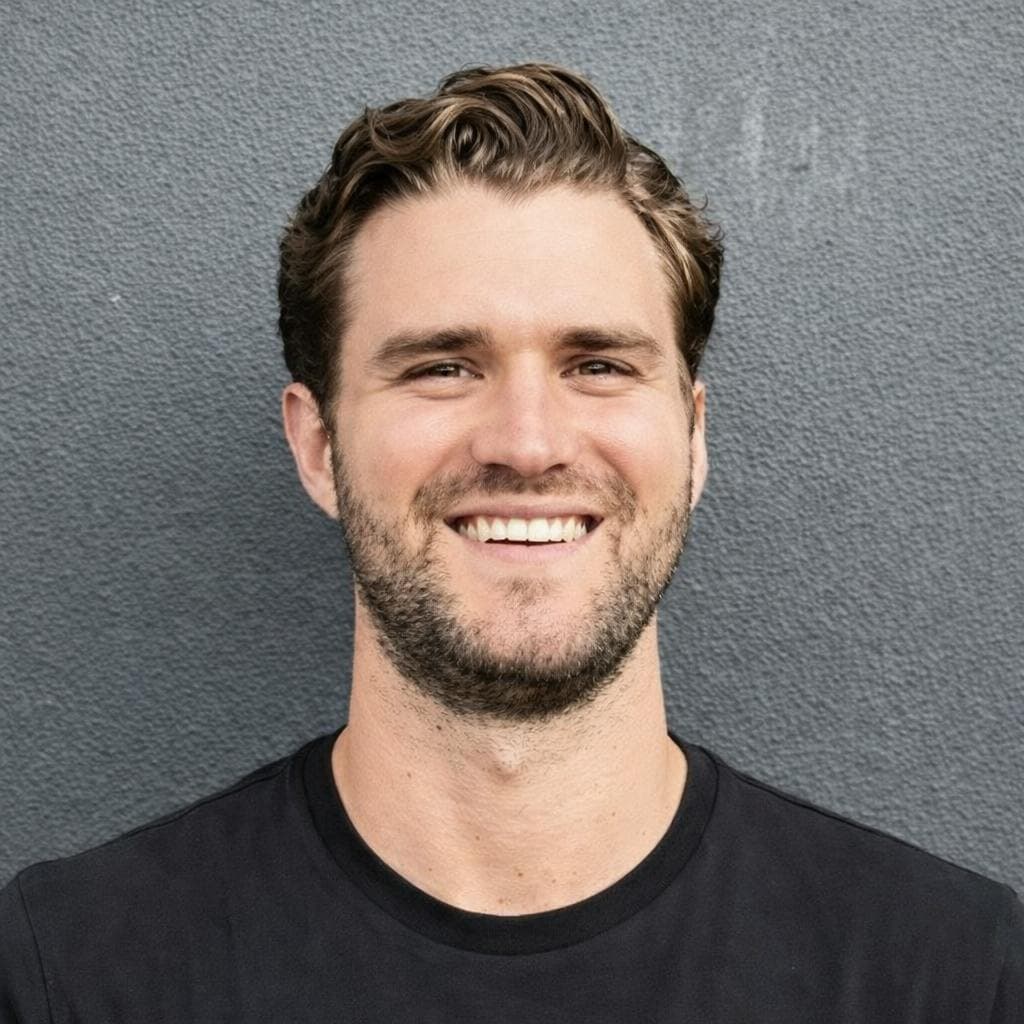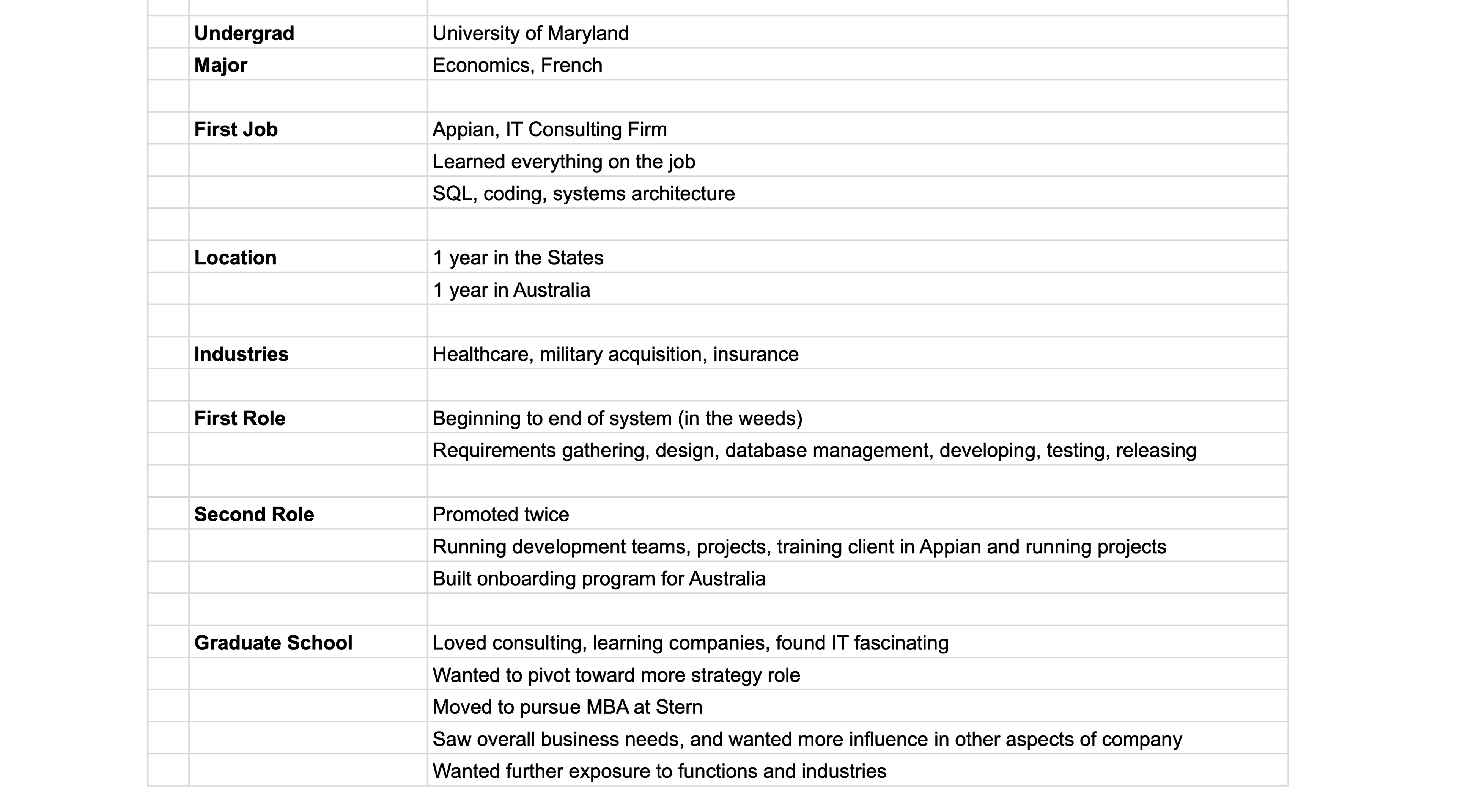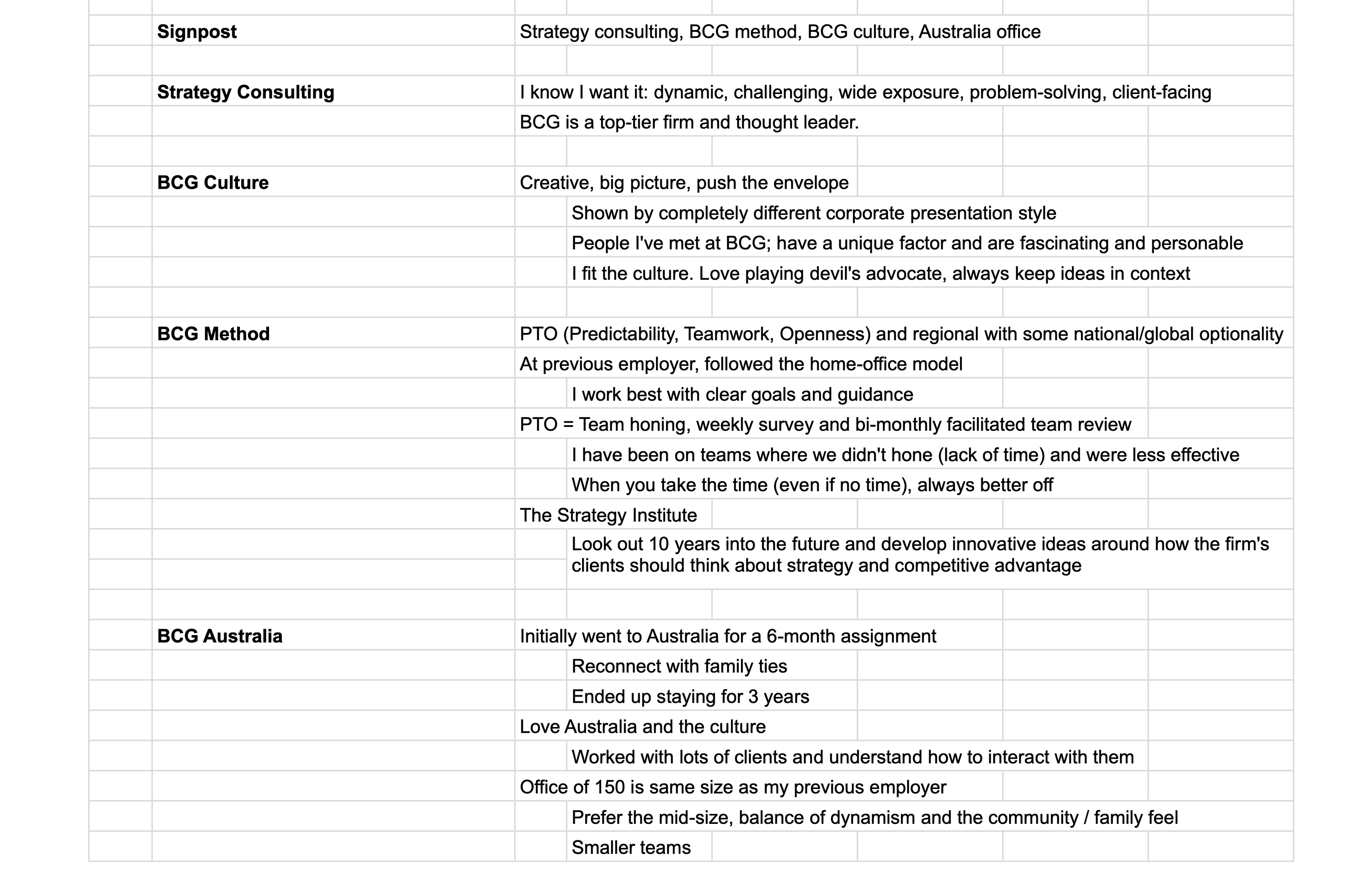The 3 Whys of Consulting Behavioral Interviews & How to Answer Them — Why You, the Role, and the Company
Almost every behavioral interview for any consulting firm will ask you a variation of three questions: Why you, why this role, and why this company? Here's how to answer all of them, from an expert coach.

By Ian G.
Top 10 Global | 1,000 candidates | 95% Success Rate | $2,556 FREE Materials
Posted March 6, 2025

Join a free event
Learn from top coaches and industry experts in live, interactive sessions you can join for free.
Table of Contents
Across all consulting behavioral interviews, regardless of company, industry, stage, etc., you should be prepared with answers for the "Three Whys." They are: Why Me (Resume Walkthrough), Why the Role (Why Consulting), and Why the Company?
These questions can be asked in a range of ways; but, regardless of the way they're asked, your prepared answer should be ready to meet their question. Examples as to how these questions may be asked are as follows:
Why Me
- I have your resume here in front of me, but could you just summarize it for me?
- Could you tell me a bit about yourself?
- So, what brings you here today?
- Is there anything you'd like me to know about you?
Why the Role
- Why are you interested in this position?
- What draws you to x (consulting/banking/etc.)?
- What brings you here today?
- Do you think you're well suited for this role?
Why the Company
- Why do you want to work here?
- Do you think you'd be a good fit at this firm?
- What brings you here today?
- Why are you not applying at x competitor(s)?
You may note that some questions are repeated across the 3 "Whys." In this case, you will need to merge your answers and create a bit of a hybrid approach. The best example here is the, "What brings you here today?" Here, you need to present a condensed "Why Me?" AND a condensed "Why the Role?" and finish articulating "Why the Company?".
PS - If you have Leland+, make sure to watch the full video on the Three Consulting Behavioral Whys here.
How to Answer the Three Whys
So, now you know what the questions are, how do you actually go about answering them? Here, I will outline how to set up your answers for each question.
1. Why Me
Steps:
- You should answer in chronological order.
- Only keep the important details that make you look good (e.g. I worked across seven industries and rose up the ranks twice in the course of that role).
- Keep to the theme of "Why Consulting?"
- At each step, you need to show that you both got exposure to aspects of the industry and thrived there / enjoyed them. This shows that you know what the role entails, and are well up to the task.
- Finish with, "And that's why I'm here today looking to work in consulting at this company..."
What your prep might look like:

Example answer:
"I majored in Economics and French at UMD and, interestingly enough, joined an IT Consulting firm out of college. This turned out to be a really impactful move for my career as I was able to build both my analytical and problem-solving skillset, as well as my consulting and communication toolkit.
While at this company, I was promoted twice within three years and took on a range of responsibilities from designing, building, and maintaining a large-scale database and IT system, to managing multi-million dollar projects. This was across a number of industries from insurance to government to healthcare, and across all kinds of company functions such as HR management, acquisitions, and grants/approvals.
I really enjoyed my experience at this company, but often felt like I was naturally drawn toward the "bigger picture" thinking. I'd ask things like, "Why this system and not that one?", "Does this organization really need X?", and "How can we change our business fundamentally with this tool?" As such, I decided to pursue my MBA at Stern to gain more business knowledge and strategic thinking skills. I'm excited to be here today at BCG as I believe I am well suited for a career in strategy consulting based on my skills and interests, and BCG would be a fantastic place to do this"
2. Why The Role
Steps:
- You need to summarize what you did before along the theme of the consulting aspects you liked and those that were missing.
- You then combine those two - i.e. I know I like and am good at x, y, and z which is required for consulting, and I really am excited to get a, b, and c...
- You finish with a mini "Why X company?".

Example:
"I'm interested in strategy consulting not only because it plays to my strengths, but also because I am really interested in the work itself. In my prior role at Appian, I was able to get a good feel for consulting in general. I worked on a range of projects across a wide variety of industries and clients. I worked in diverse, client-facing teams to solve complex problems and drive real value.
I really enjoyed my experience at the company, but often felt I was naturally drawn towards the "bigger picture" thinking. I'd ask things like "Why this system and not that one", "Does this organization really need one?", "How can we change our business fundamentally with this tool?" I felt like something was missing, and, after some research, realized that strategy is the area that I naturally run toward, as opposed to implementation. Luckily, my past roles lend themselves very well to strategy consulting - I know what the job entails and I know I like and am good at communicating with clients, solving problems, working in diverse teams, etc. etc."
3. Why The Company
Steps:
- Start with a mini "Why Consulting?"
- Then, follow it with two or three reasons why x company is your target.
- Every "reason" needs to show the following: 1) That you know what they value, and 2) That you not only also value x, but have clearly exhibited it in the past
- It's important to be especially mindful of what they want you to want.

Example:
"So, first of all, I'm extremely interested in Strategy Consulting because I feel that my skills and interests closely align with the work and what's expected on the job. I think there's no better place to be than at BCG. Of course, BCG is a top-tier firm and carries with it a lot of prestige. But more than this, I want to work at a place where I can learn from the best and build my consulting toolkit, where I can work on interesting projects and drive client value, and where I fit in with the culture and people. BCG is this.
In terms of the Learning & Development opportunities, I'm drawn to BCG's mentorship, continuous feedback, and Labs programs. I thrive in roles where I receive frequent feedback, proactive mentorship, and supporting resources.
In terms of work, I appreciate BCG's approach to working with the client to develop solutions, the creative and unique approach to solving problems, and their team model. This is exemplified by BCG PTO model, The Henderson Institute, and the Strategy Lab.
Finally, in terms of culture, every person I've met at BCG has been incredibly smart, curious, humble, and driven. These are the types of people I get along with and have worked well with in the past and BCG really feels like the perfect match."
Conclusion
You will be asked a variation of these questions in every single behavioral interview in consulting, as well as in many other industries. While you don't want to over-rehearse to the point where you come off robotic, you do want to be prepared. Knowing your "whys" is the best place to start.
Ian G. is a professional consulting coach who has spent the last five years helping 500+ candidates land their dream roles at firms like McKinsey, Bain, BCG, LEK, PwC, Strategy&, EY Parthenon, Deloitte, and more. Book a free intro call and work with Ian on your consulting prep today!
Read these next:

Written by Ian
5.0
(63)
My name is Ian Glennon and my mission is to offer the best interview prep for consulting candidates. I have combined my personal experience interviewing, my training at BCG, and my years of successfully coaching thousands of diverse candidates to create Custom Case Coach. This holistic program teaches candidates how to optimally approach casing, arming them with the preparation toolkit, mindset shifts, and customizable frameworks needed to tackle any case or interview they may encounter. While pursuing my MBA at NYU’s Stern School of Business, I passed interviews for all 8 of the consulting and tech firms at which I interviewed, ultimately deciding to work at BCG. Leveraging this experience, I have built a flexible, diverse arsenal of practical guides to help you prepare for your next career step. No matter where you are in the process or what background you have – I've got you covered!
Ian has helped clients get into organizations like:
Browse hundreds of expert coaches
Leland coaches have helped thousands of people achieve their goals. A dedicated mentor can make all the difference.




















